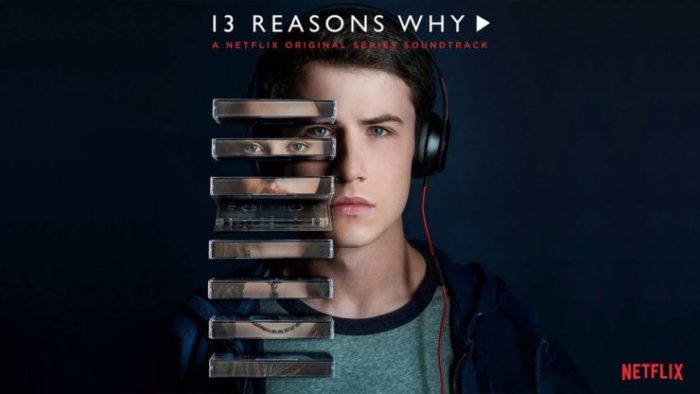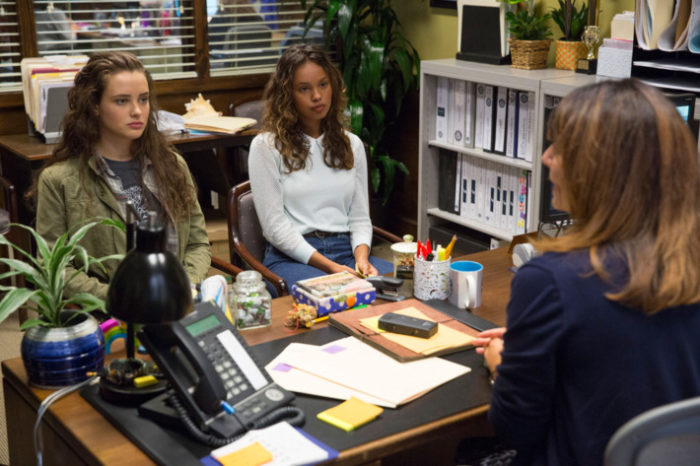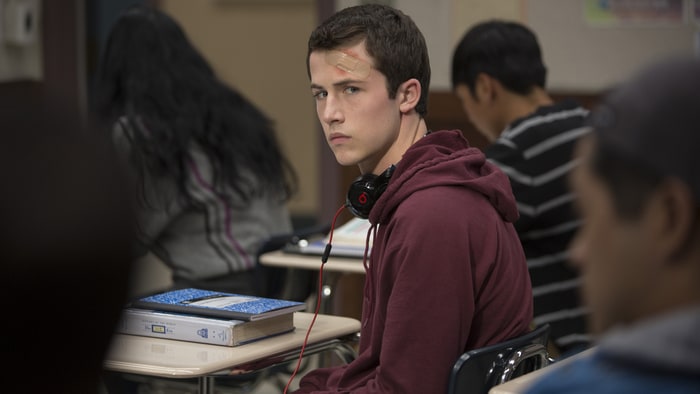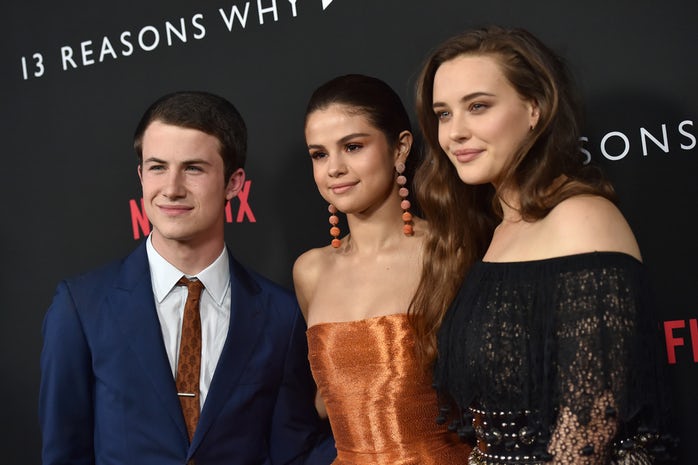Although a big hit with viewers all around the globe, 13 Reasons Why still remains one of the most talked about shows of this generation. Is the backlash justified?

By now, you’ve probably heard all about Netflix’s latest original series 13 Reasons Why. The show premiered on March 31 but is still dividing audiences everywhere. People are either for or against what’s being depicted in the shocking series. Teens are identifying with the issues they, unfortunately, see on a daily basis at school and many parents are astounded by the scenes they see before them.
There’s been a lot of backlash that the adaptation is glorifying suicide, but no one seemed to be too bothered by the book version. Even though they depict the exact same scenes… 13 Reasons Why has been critically acclaimed for the compelling performances by the fresh-faced cast and has received praise for its unflinching take on bullying and assault.

Suicide will always be a tough topic to tackle without being sensationalised or reductive. A lot of the series backlash comes down to the fact that 13 Reasons Why is both sensationalised and reductive to the seriousness that is suicide and mental health. The thought process behind Hannah recording and distributing the tapes was shocking to a lot of viewers. The action gave viewers an idea that Hannah committed suicide to get revenge on those that treated her so badly and then further torture them by making them live through it all over again. The depiction of Hannah is of a girl in crisis who reacts by choosing to take her own life and rather cruelly make others feel irreparably guilty.
These actions create a false image that a person can be in control after their death and also offers no other alternatives for Hannah beside killing herself. More importantly, it sends the false message that killing oneself and leaving a note/tapes/etc. is an effective method of sending a message to the world, when in fact, the opposite is true.
Hannah’s suicide scene was obviously the most shocking of all. The confronting imagery was set up just how a scene like that should be. Completely engrossing with no flashy post production distractions. But this realism has viewers undecided on if it was too much – have Netflix just published a how-to-guide for millions of people?

Nic Sheff, writer of the series, told Vanity Fair that “From the very beginning, I agreed that we should depict the suicide with as much detail and accuracy as possible. I even argued for it—relating the story of my own suicide attempt to the other writers.”
Executive producer of the show, Selena Gomez responded to the backlash 13 Reasons Why is receiving in an interview with The Associated Press. “We stayed very true to the book and that’s initially what [author] Jay Asher created, was a beautifully tragic, complicated yet suspenseful story. And I think that’s what we wanted to do,” she said.
“We wanted to do it justice and, yeah, [the backlash is] going to come no matter what. It’s not an easy subject to talk about, but I’m very fortunate with how it’s doing and I’m overwhelmed, very proud of it.”
For many, this statement rang hollow and failed to address their concerns over the potential negative impact of depicting suicide as an option.

Mental heath advocates and suicide prevention organisations claim they’re doing damage control from the 13 Reasons Why aftermath. Phyllis Alongi, director of the Society for the Prevention of Teen Suicide expressed her concern that the show didn’t address mental illness, which plays a role in 90% of suicides. Schools all around the US have been issuing letters to parents to express their concern with letting children and teenagers watch the show.
Netflix has responded to a lot of the negative feedback and has said that they will add more advisory warnings to the suitable episodes of 13 Reasons Why. Is this enough though, when the show fails to depict solutions or healthy ways of coping with trauma stemming from bullying or sexual assault?
Check out our post on why we think a series as shocking as this is so important for young people to watch.







